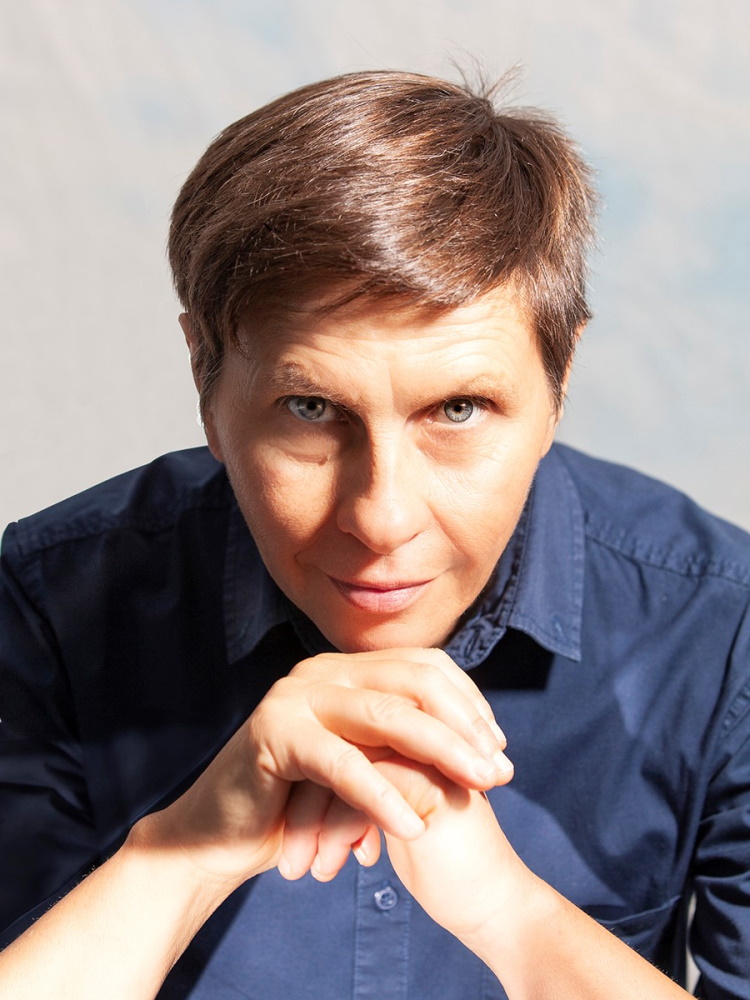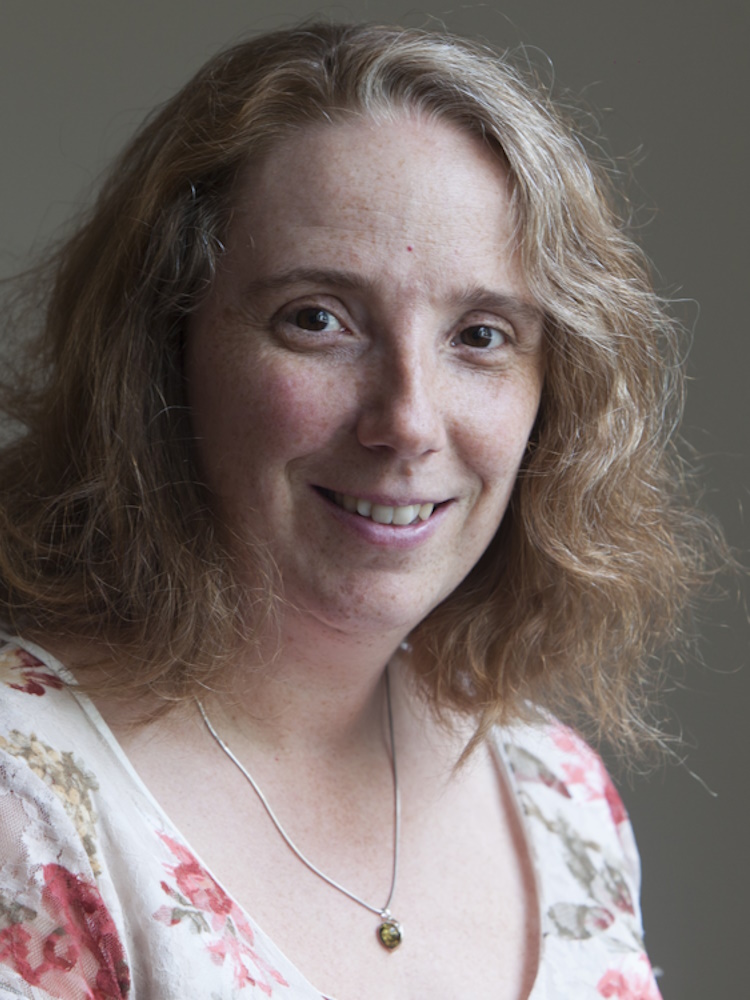pessoas | people

Heitor Alvelos. PhD Royal College of Art 2003; MFA School of the Art Institute of Chicago, 1992. Full Professor of Design at the University of Porto. Director of ID+ @ U.Porto, where he coordinates the Unexpected Media Lab. Vice-President of the European Academy of Design; member of the Academia Europaea and the European Science Foundation. Course Director of the PhD in Design program (U.Porto / UPTEC / FCT / U.Aveiro). Chair of the Scientific Board (HSS), Foundation for Science and Technology, 2016-2022 (member 2010-2022). Curator of the FuturePlaces Medialab (2008-2017), and Outreach Director of the UTAustin-Portugal Program for Digital Media (2010-2014). Senior Tutor, Drawing Studio (Royal College of Art,1999 – 2001).
Recent research projects include “Anti-Amnesia: Design research as an agent for narrative and material regeneration and reinvention”, and “An Infodemic of Disorientation: design as mediator between scientific knowledge and cognitive bias.” Heitor Alvelos has acted as consultant for the Ministry of Science (PT), the Arts and Humanities Research Council (UK), and the New European Bauhaus (European Commission via MCTES).

Maria Carmo-Fonseca is Professor at the University of Lisbon Medical School. She is a founder of the Institute of Molecular Medicine (iMM), a biomedical research institute affiliated with the University of Lisbon Medical School, where she currently serves as President. She was visiting Professor at Harvard Medical School (2011 to 2013). She is member of the European Molecular Biology Organization, the Portuguese Academy of Sciences, the Portuguese Academy of Medicine, and Academia Europaea, and she served as President of the RNA Society (2021-2022). She has been scientific editor for the Journal of Cell Science and the RNA journal. Carmo-Fonseca received several prestigious national science awards, and serves in multiple national and international advisory committees.
Since her post-doc at EMBL Heidelberg, Carmo-Fonseca is interested in understanding the nuclear organization and regulation of pre-mRNA splicing. Her lab combines microscopy techniques and genome-wide methodologies to study the interplay between transcription and RNA processing.

Ana Sofia Carvalho (F) is a Full Professor of the Instituto de Ciências Biomédicas Abel Salazar (ICBAS) of the University of Porto and the Ethics Consultant at CUF Hospitals. She is also the PI of ELSI WP of the Horizon Europe Project REPO4EU.
She was an Associate Professor with Aggregation in Bioethics until May 2021 and the Chairholder of the Portuguese UNESCO Chair in Bioethics of Universidade Católica Portuguesa (UCP). She also was until 2019 director of the Instituto de Bioética.
She was a member of the European Group on Ethics in Science and Technology (EGE) from 2017 to 2021 and Member of the National Council on Ethics in the Life Sciences, elected by the Council of Rectors of Portuguese Universities (Parliament) from 2009 till 2021.
She was the coordinator of the Doctoral Program in Bioethics (till 2021) and of the Office of Ethical Evaluation and Science Integrity in the Portuguese Foundation for Science and Technology from (2012-2018).
She has been an Expert for ethics evaluation of the European Commission since FP6 (Marie Curie Grants, European Research Council, European Commission DG Research & Innovation Directorate F – Health, European Commission DG Research & Innovation Directorate B – European Research Area B.6: Ethics and gender), during H2020 and also in the new Horizon Europe.
She is/was member or consultant in different projects or infrastructures.
She has been honoured with the award “Mulheres na Ciência 2023”.

Ana Delicado. Sociologist, with a PhD from the Institute of Social Sciences of the University of Lisbon (2006), she is currently a Senior Research Fellow at ICS-ULisboa. She has achieved her Habilitation in 2023. She works mainly in the area of social studies of science. She is currently deputy coordinator of Observa Observatory of Environment and Society, the coordinator of the Observatories Council and a member of the University Outreach Commission of ICS. She teaches in the PhD Program on Climate Change and Sustainable Development Policies and in the Post-Graduation in Social Science Methods. She is a member of the Portuguese Sociological Association (currently President of the General Assembly), the European Sociological Association (currently coordinator of the Executive Board of RN24 Science and Technology) and EASST European Association of Studies of Science and Technology. She received the Scientific Award University of Lisbon/Caixa Geral de Depósitos 2018 in the social sciences category. She has led both nationally funded research projects and the ICS team in European funded projects. She is currently involved in projects concerning digital technologies, carbon capture and storage and renewable energy. She has also worked on science communication and public engagement, risk and disaster, environmental issues and scientific associations.

Luis Graca has an MD from the University of Lisbon, Portugal, and a PhD in transplant immunology from Oxford, UK. He developed his post-doctoral research first in Oxford and later in Perth, Australia. He is currently Full Professor of Immunology and Vice-Dean at the University of Lisbon Medical School, directing a research group in Cellular Immunology at the Instituto de Medicina Molecular.
His most significant scientific contributions have been related to the fields of transplantation and autoimmunity. Graca worked on the regulation of antibody production following vaccination and strategies to overcome transplant rejection and the induction of immune tolerance in autoimmunity and allergy. Graca has been exploring the concept that in the same way specialized inflammatory responses are necessary for optimal immunity, specialized regulatory mechanisms ought to be also present. While probing this concept, Graca discovered the existence of Foxp3+ iNKT cells and, more recently, T follicular regulatory (Tfr) cells specialized in regulating antibody production. The recognition of his research led to invitations to review the field, presentations at major conferences, and election as president of the Portuguese Society of Immunology and of the Sociedade das Ciências Médicas de Lisboa, the oldest medical society in Europe (founded in 1822).
Graca chairs the National Advisory Group for COVID-19 Vaccination. A highlight of his career was the definition of the national COVID-19 vaccination plan, incorporating the best immunology evidence and transparent public communication, leading to overall population acceptance and broad vaccination coverage, recognized as one of the most successful vaccination programs in the World.
Graca has collaborated with several artists, including a long-term relationship with Marta de Menezes (www.martademenezes.com), a pioneer in bioart, and possibly the artist with the most diverse approach within this field. Artworks developed by different artists in collaboration with the Graca Laboratory have been exhibited worldwide.

Jorge Pedrosa holds a degree in Biochemistry (1994) and a PhD in Biomedical Sciences (2000).
J. Pedrosa is a Full Professor and Senior Researcher at the Live and Health Sciences Research Institute (ICVS), ICVS/3B’s Associate Laboratory, School of Medicine, University of Minho. His research interests are related with host-pathogen interactions, including infections by virulent bacteria, particularly mycobacteria. He collaborates with a network of research institutions in Portugal, Europe, USA and Africa.
J. Pedrosa has been responsible for the supervision of 18 PhDs, published more than 80 articles in peer-review journals, coordinated teams in national and European R&D projects and was responsible for the organization of more than 20 international conferences and advanced courses.
J. Pedrosa is the President of the Portuguese Society of Microbiology, President of B.ACIS | Associação Ciência Inovação e Saúde, Coordinator of the InflammaSignal Research Team | ICVS, and member of the Direction Board of the Clinical Academic Center 2CA– Braga Hospital.
J. Pedrosa was the recipient of several scientific awards, including: in 1989 the Science Award “Boa Esperança”; in 1994 the “PFIZER” award; in 2006 the “Excellence in Immunology Mário Arala Chaves” award; and in 2010, the Pulido Valente Science Award.